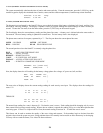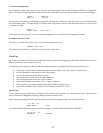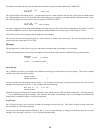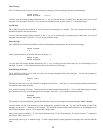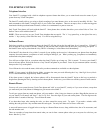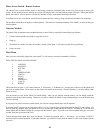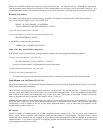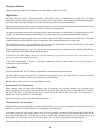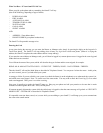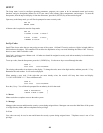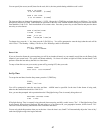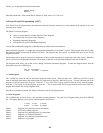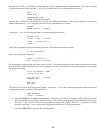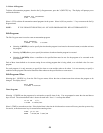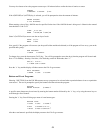44
Emergency Dial-Out
Emergency dial out consists of two distinct parts: the "digital dialer" and the "voice dialer".
Digital Dialer
The digital dialer (also called a "digital communicator") reports alarm events to a central station monitoring center. The digital
dialer sends a digitally coded message to the central station's receiver and computer. The computer in the central station presents
your name, address, and other information to a human operator who notifies the appropriate authorities.
Digital communications to a central station are generally superior to voice communications because the central station is always
staffed with trained professionals and there is virtually no chance for misinterpretation.
The digital communicator will not dial out until the Dial Out Delay has expired. By default, there is a communicator delay of 30
seconds. The delay can be removed or increased up to 45 seconds. Please consult your installer about the Dial Out Delay.
When enabled, if the alarm is canceled prior to the expiration of the Dial Out Delay, no transmission will take place. If the alarm
is canceled after the Dial Out Delay has expired, all alarm trips will be transmitted followed by a Cancel code.
The communicator may be set up to automatically send a test code to the central station on a daily or weekly basis. This verifies
proper operation of the entire monitoring system on a periodic basis.
When the digital communicator is used, all voice dial outs will be delayed for five minutes after the expiration of the Dial Out
Delay to allow time for the central station to call the premises.
If the HAI Two-Way Audio Module is being used, after the transmission of the alarm to the central station, the operator can talk
and listen to people and sounds at the premises.
If the digital communicator is unable to successfully communicate with the central station, the console will display a
Communicator Trouble condition.
Voice Dialer
In UL Listed Installations, the Voice Dialer is supplementary to the Digital Dialer described above.
The voice dial-out feature of the OmniLT is a sophisticated system that can notify you at the office, on vacation, on a pocket
pager, or notify your neighbor, a relative, and in some cases, local authorities.
See What Happens When the Alarm is Activated, also Set Up Dial.
How the OmniLT Voice Dialer Works
When a Burglar Alarm, fire alarm, police emergency keys, fire emergency keys, auxiliary emergency keys, gas alarm, water
alarm, Temperature alarm, or duress alarm is activated, the voice dialer looks at the Dial Order to determine which numbers to
dial and in what order. A Dial Order can have up to 8 entries, allowing the dialer to make up to 8 calls. If you want it to try a
number twice, it can be entered twice in the dial order.
The dial order numbers can be chosen from Dial Out Numbers 1 - 8.
What the OmniLT Voice Dialer Does
When an alarm is activated, the OmniLT will wait the Dial Out Delay. If your system is monitored by a central station, it will be
notified first. Then the voice dialer will dial out to the numbers as described above.
If the alarm is turned off at the console while a voice dial-out is in progress, the dial-out will be canceled immediately and the
voice dialer will hang up. If the number dialed is busy, or if all lines are busy, the dialer will immediately hang up and go to the
next number in the Dial Order. The dialer will wait up to 45 seconds after it finishes dialing for a voice to answer the call. If it
doesn't hear a voice in that time, it goes on to the next number. The voice dialer will respond to answering machines.
After it has dialed the last number in the dial order, the OmniLT stops dialing and reconnects the in-house phones.



